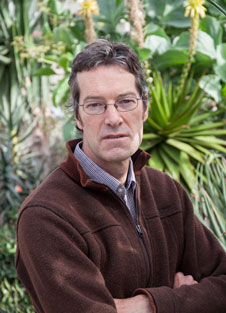 Monday 15 August 2016 2:09pm
Monday 15 August 2016 2:09pm
Professor Steven Higgins
A University of Otago botany researcher and colleagues have developed a new system to map the world's “biomes”— large-scale vegetation formations — that will provide an objective method for monitoring how vegetation reacts as climate changes.
The system uses satellite observations of the timing and intensity of vegetation activity and how this relates to temperature and soil moisture to classify the world's vegetation into 24 biome types.
Several other global biome maps exist, but the researchers' goal was to produce one that is not reliant on expert opinion or correlations between vegetation and climate.
Botany Professor Steven Higgins says they used their new classification scheme to examine change in biomes over time and found that 13 per cent of the Earth's land surface changed its biome state over the last three decades.
“This suggests that substantial shifts in the character of the Earth's surface are under way. Examples include swathes of Nambia and north-central Australia transitioning into drier biome categories and large expanses of cold limited systems shifting to more productive categories.”
Professor Higgins says while global change is the likely driver of the biome shifts detected, their study did not attempt establish such causal links.
“Future studies could use this system to monitor biome change and attribute the causes of the change.
“Our system provides an objective way to classify the land surface, which is important not only for monitoring change but also for comparing the behaviour of ecosystems in different parts of the world. These comparisons are essential for understanding the drivers of ecosystem dynamics and how ecosystems might respond to change.
“If such comparisons are underpinned by a faulty biome classification we end up comparing apples with oranges.”
The research is published in the international journal Global Change Biology.
For more information, contact:
Professor Steven Higgins
Department of Botany
University of Otago
Tel 64 3 479 9146
Email steven.higgins@otago.ac.nz
A list of Otago experts available for media comment is available elsewhere on this website.
Electronic addresses (including email accounts, instant messaging services, or telephone accounts) published on this page are for the sole purpose of contact with the individuals concerned, in their capacity as officers, employees or students of the University of Otago, or their respective organisation. Publication of any such electronic address is not to be taken as consent to receive unsolicited commercial electronic messages by the address holder.